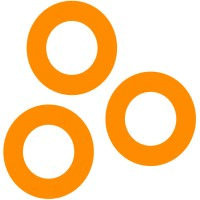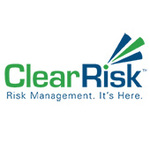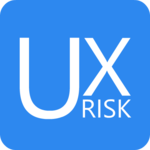Description

Horizon Portfolio Management

Pims Risk
Comprehensive Overview: Horizon Portfolio Management vs Pims Risk
Horizon Portfolio Management and Pims Risk: Comprehensive Overview
a) Primary Functions and Target Markets
Horizon Portfolio Management
-
Primary Functions:
- Investment Management: Offers comprehensive tools for managing investment portfolios, including asset allocation, performance tracking, and rebalancing.
- Analysis and Reporting: Provides sophisticated analytics and customizable reporting features to assess portfolio performance and risk.
- Compliance and Regulatory Support: Ensures that portfolios comply with industry standards and regulations.
-
Target Markets:
- Financial Advisors: Assists financial advisors in managing portfolios for their clients.
- Asset Managers: Serves institutional investors and asset management firms in handling diverse investment strategies.
- Private Banks: Functions as a tool for private banks to offer personalized portfolio services to high-net-worth individuals.
Pims Risk
-
Primary Functions:
- Risk Assessment: Specializes in identifying, analyzing, and managing financial risks within investment portfolios.
- Scenario Analysis: Provides tools for simulating market events and their impact on portfolios.
- Risk Reporting: Delivers detailed risk reports and analytics for better decision-making.
-
Target Markets:
- Risk Managers: Focuses on professionals responsible for managing risk within investment firms and banks.
- Compliance Officers: Assists compliance teams in assessing risk exposure and ensuring regulatory adherence.
- Hedge Funds: Equips hedge funds with the necessary tools for comprehensive risk management strategies.
b) Market Share and User Base
-
Overall Market Share:
- Horizon Portfolio Management typically is more prevalent among firms focusing heavily on portfolio analytics and reporting. Its market share reflects a broader adoption among general asset management and advisory businesses.
- Pims Risk, on the other hand, is more niche-focused, commanding a significant presence in firms where risk management is prioritized, such as hedge funds and specialized risk advisory services.
-
User Base:
- Horizon Portfolio Management boasts a larger user base across diversified sectors within financial services. It is favored by users who require an integrated solution for investment management and reporting.
- Pims Risk has a concentrated user base often comprising risk analysts and specialists who require detailed risk-focused tools. The user base is smaller but highly specialized.
c) Key Differentiating Factors
-
Functionality and Features:
- Horizon Portfolio Management offers a broader set of investment management features, encompassing a wide range of tools for asset monitoring, allocation, and compliance. It excels in providing a comprehensive view and control over investment portfolios with a strong emphasis on customization and flexibility.
- Pims Risk, however, distinguishes itself with specialized risk analysis features. It provides more granular risk metrics and analytics, catering to users who need to delve deep into risk assessment and strategy.
-
Integration and Customization:
- Horizon is often praised for its ability to integrate with other financial systems and platforms, enhancing its appeal to firms with varying tech infrastructures.
- Pims Risk offers deep customization options for its risk models, allowing firms to tailor assessments to specific risk profiles or compliance requirements.
-
User Experience:
- Users of Horizon Portfolio Management often appreciate its intuitive user interface and ease of navigation, making it suitable for diverse types of financial professionals.
- Pims Risk is considered highly effective by expert users who benefit from its detailed, methodical approach to risk analysis despite perhaps requiring a steeper learning curve.
In summary, while Horizon Portfolio Management offers broad portfolio management solutions appealing to a wide audience, Pims Risk specializes in providing in-depth risk analysis tools crucial for more niche markets. Their comparative market share and user base reflect these functionalities, with differentiation primarily in the depth of risk assessment versus portfolio management comprehensiveness.
Contact Info

Year founded :
Not Available
Not Available
Not Available
Not Available
Not Available

Year founded :
Not Available
Not Available
Not Available
Not Available
Not Available
Feature Similarity Breakdown: Horizon Portfolio Management, Pims Risk
To provide a detailed feature similarity breakdown for Horizon Portfolio Management and Pims Risk, we need to look at the core functionalities of each product, compare their user interfaces, and identify any unique features. Please note that the details may vary based on the version or specific configurations offered by these software solutions.
a) Core Features in Common
Both Horizon Portfolio Management and Pims Risk are platforms designed to support financial management and risk assessment tasks for investment portfolios. Generally, the core features they may have in common include:
-
Portfolio Management:
- Ability to create and manage investment portfolios.
- Performance tracking and reporting.
- Asset allocation and rebalancing tools.
-
Risk Management:
- Risk assessment models and metrics (e.g., VaR analysis).
- Stress testing and scenario analysis.
- Risk reporting and dashboards.
-
Data Integration:
- Integration with market data providers.
- Import/export capabilities for financial data.
-
Compliance and Reporting:
- Regulatory compliance tracking.
- Generation of compliance reports.
-
User Access and Security:
- Role-based access control.
- Audit trails and logging for compliance.
b) User Interface Comparison
While specific UI details would depend on the exact version and customization of each platform, the following general comparison can be made:
-
Horizon Portfolio Management:
- Typically offers a user-friendly interface with customizable dashboards.
- Visualizations such as charts and graphs to depict portfolio performance.
- Intuitive navigation with drag-and-drop features for ease of use.
-
Pims Risk:
- Focused on detailed risk analysis and might have a more data-centric layout.
- Usually offers sophisticated statistical graphs and quantitative data outputs.
- Interface might be geared towards risk analysts with access to advanced analytics tools.
c) Unique Features
-
Horizon Portfolio Management:
- May offer unique functionalities such as automated portfolio rebalancing based on predefined criteria.
- Advanced client communication tools for portfolio performance updates.
- Support for a wider range of financial instruments including emerging markets and alternative assets.
-
Pims Risk:
- Specialized risk assessment models tailored for complex financial instruments.
- Advanced scenario analysis tools specific to risk evaluation.
- Industry-specific risk management solutions (e.g., tailored for banking, insurance, or asset management sectors).
Conclusion
While both Horizon Portfolio Management and Pims Risk share core functionalities related to portfolio and risk management, they cater to slightly different aspects of financial management, with Horizon offering broader portfolio management capabilities and Pims Risk focusing in-depth on risk analysis. The user interface and unique features of each product reflect their specialization and target audience within the financial services industry.
Features

Risk Management
Client Management
Financial Planning
Investment Tracking

Risk Assessment
Incident Reporting
Compliance Management
Best Fit Use Cases: Horizon Portfolio Management, Pims Risk
Horizon Portfolio Management and Pims Risk are tools typically used in the realms of financial services, project management, and risk management. Each serves distinct purposes and is best suited for specific use cases based on business needs and scenarios.
Horizon Portfolio Management
a) Types of Businesses or Projects:
-
Financial Institutions: Banks, investment firms, and asset management companies can leverage Horizon for managing investment portfolios, analyzing market trends, and optimizing asset allocations to maximize returns.
-
Large Enterprises: Corporations with diverse business units and project portfolios find Horizon useful for aligning their project investments with corporate strategy, ensuring resource optimization across various domains.
-
Project Offices: Organizations that handle multiple projects simultaneously, such as construction firms or technology companies, use Horizon to prioritize projects based on strategic value, resource availability, and risk factors.
-
Venture Capital and Private Equity: Firms in these sectors can use Horizon to manage their portfolio of investments, assess the performance of different startups or ventures, and make data-driven decisions on funding allocation.
b) Scenarios for Use:
- Strategic Alignment: Where there is a need to align project outcomes with business strategy to ensure that investments contribute to long-term objectives.
- Resource Optimization: Businesses aiming to optimize the use of resources across multiple projects can harness Horizon's analytical capabilities.
- Project Prioritization: Environments where projects must be prioritized based on their contribution to organizational goals or ROI.
Pims Risk
b) Scenarios as the Preferred Option:
-
High-Risk Industries: Companies involved in sectors such as oil and gas, construction, and energy where projects are exposed to significant operational and safety risks. Pims Risk helps identify and mitigate these risks effectively.
-
Regulatory Compliance: Scenarios where businesses must comply with stringent regulatory frameworks. Pims Risk can support regulatory risk management and help ensure compliance.
-
Complex Projects: Infrastructure or major capital projects with complex risk profiles regarding engineering, security, or environmental factors benefit from Pims Risk's focus on assessing and managing risk factors.
-
Operational Risk Management: Enterprises that need to continuously track, assess, and mitigate operational risks across various business processes might choose Pims Risk for its focus on understanding and minimizing potential threats.
d) Catering to Different Industry Verticals or Company Sizes:
-
Industry Verticals: Horizon Portfolio Management is versatile in serving various verticals where investment and project delivery are key, such as finance, IT, healthcare, and manufacturing. It provides tools for strategic decision-making across these sectors.
-
Pims Risk is particularly suited for industries requiring rigorous risk assessment and management, such as energy, construction, manufacturing, and pharmaceuticals. The focus is on identifying, evaluating, and mitigating risks that could impact project success.
-
Company Sizes:
- Large Corporations: Both tools are scalable and robust enough to handle the complex needs of large enterprises, whether in managing a diverse project portfolio or addressing risk across multiple projects/business units.
- SMEs: While larger structures might benefit more pronouncedly, SMEs can use these products for projects that require strategic alignment or have significant risk management needs, albeit possibly with customized solutions or scaled down versions.
In summary, Horizon Portfolio Management serves organizations looking to strategically manage and optimize diverse project portfolios, whereas Pims Risk is ideal for entities needing stringent risk management, especially in high-stakes sectors. Both can be tailored to suit various industry verticals and company sizes but excel in different spheres of project management and risk mitigation.
Pricing

Pricing Not Available

Pricing Not Available
Metrics History
Metrics History
Comparing undefined across companies
Conclusion & Final Verdict: Horizon Portfolio Management vs Pims Risk
To provide a conclusion and final verdict for Horizon Portfolio Management versus Pims Risk, let's break down the considerations into the specified categories:
a) Considering all factors, which product offers the best overall value?
Horizon Portfolio Management generally offers the best overall value for users who are looking for comprehensive investment management solutions that integrate various asset classes and provide robust analytics and reporting features. It is particularly beneficial for users who prioritize strategic asset allocation, risk profiling, and sophisticated portfolio analysis tools.
b) Pros and Cons of Choosing Each Product
Horizon Portfolio Management:
-
Pros:
- Comprehensive analytical tools for a detailed understanding of portfolio performance.
- Integrated asset management solutions that cater to a wide range of financial products.
- Advanced risk management features, which can assist in mitigating potential investment risks.
- Customizable reports and dashboards, offering tailored insights for different user needs.
-
Cons:
- May have a steeper learning curve due to the complexity of features.
- Could be more costly compared to basic portfolio management solutions, especially for smaller investors.
- Requires some level of expertise or willingness to engage with financial concepts to fully leverage its functionalities.
Pims Risk:
-
Pros:
- Focuses heavily on risk management, providing tools specifically designed to identify and mitigate risk.
- Potentially more affordable or cost-effective for users primarily concerned with risk, rather than comprehensive management.
- User-friendly interface that could be more approachable for those less experienced with financial software.
-
Cons:
- May lack some of the comprehensive portfolio management features found in Horizon.
- Could be less suitable for users looking for advanced asset allocation and strategic investment tools.
- May require integration with other tools for a holistic investment management approach.
c) Specific Recommendations for Users Deciding Between Horizon Portfolio Management vs Pims Risk
-
For Users Seeking Comprehensive Solutions:
- Choose Horizon Portfolio Management if your primary goal is to have an all-encompassing tool that integrates investment management with detailed analytics and reporting. This is ideal for users who need a robust solution that covers all aspects of portfolio tracking and strategic planning.
-
For Users Focused on Risk Management:
- Opt for Pims Risk if managing investment risk is your predominant concern and you're looking for a straightforward solution that can be potentially more cost-effective. This could be suitable for both novice and experienced investors who are particularly risk-averse.
-
Assess Your Needs:
- Evaluate what aspects of portfolio management are most critical to your strategy. Users who require detailed analysis, strategic planning, and a full suite of management tools will benefit more from Horizon. Conversely, if your needs are more inclined towards understanding and managing risk without needing advanced financial modeling, Pims Risk might be the better fit.
-
Budget Considerations:
- Consider your budget and whether the additional features of Horizon justify the cost compared to potentially less expensive options like Pims Risk.
Ultimately, the decision between Horizon Portfolio Management and Pims Risk should be made based on a clear understanding of one’s investment goals, the complexity of their portfolio, and the specific financial tools needed to achieve their objectives.
Add to compare
Add similar companies



